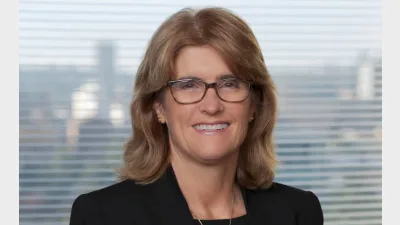Events that surprised in 2024: Part 1



Another year of volatility and uncertainty has come and gone.
Following on from a tumultuous year, volatility and uncertainty were predicted to be persistent themes throughout 2024 and the predictions were right.
But while a rocky year was not unexpected, a number of major events did manage to both shock and surprise us. Here’s a look back at the biggest issues that caught many off guard in 2024.
RBA gets an overhaul
After a flurry of eleventh-hour dealmaking with the Greens and Senate independents, the legislation to overhaul the Reserve Bank (RBA) was secured in late November.
Originally slated to take effect on 1 July, the legislation implementing the findings of an independent review into the RBA had been delayed in the Senate. The reforms appeared to be on the brink of collapse, but in a marathon sitting on the final day of Parliament, the government managed to negotiate a deal to secure the central bank’s biggest shake-up in over three decades.
With the legislation introducing a two-board system – one focused on interest rate decisions and the other on governance – set to take effect on 1 March, the Albanese government also revealed the full composition of both boards mid-month.
Treasurer Jim Chalmers also confirmed that besides a new two-board system, the RBA will also get a new objective: to “promote the economic prosperity and welfare of the people of Australia, both now and into the future”.
The overhaul has, however, sparked controversy.
A staunch opposer of the reforms, AMP’s Shane Oliver has said: “There is no evidence that the RBA review’s proposal to set up a separate interest rate setting board would lead to better outcomes or that it’s world’s best practice.”
Instead, Oliver said it could reduce RBA’s accountability and create confusion.
Slower progress on inflation
Diverging from its global counterparts, the RBA has yet to budge on easing monetary policy. In its last rate decision of the year, the central bank held rates at 4.35 per cent for the ninth consecutive time.
While RBA governor Michele Bullock has conveyed cautious optimism for 2025, with the board increasingly confident that inflation will ease gradually next year, November’s jobless figures prompted giants like the CBA to cast doubt on the forecast for rate cuts.
Economists continue to remain divided on the timing of the first rate cut as the Australian economy is proving to be stubbornly resilient. But many are taking note of the central bank’s shift to a more dovish tone.
While many countries have loosened their policies, Bullock has made it clear that Australia’s unique economic conditions require a different course.
“In Australia, interest rates did not reach the same levels of restrictiveness as many other countries, and consistent with this, inflation has been somewhat higher relative to target here than in most of those economies, and the labour market is also tighter,” she said in December.
“This means that even with a similar approach to setting policy, the time to adjust domestic monetary policy settings can differ from peer central banks.”
Asked whether that meant no rate cuts until 2026, Bullock declined to speculate, but hinted that, like global counterparts, the RBA may cut rates before inflation hits its target range, provided it’s confident the target is within reach.
New and ongoing geopolitical tensions
Economists said that geopolitical risks will remain elevated into 2025.
As 2024 comes to a close, markets are thinking about escalating global tensions, European political uncertainty, and upcoming Australian and German elections as potentially impacting oil prices and public spending.
“These considerations point to at least a high risk of increased volatility,” AMP’s Shane Oliver said in a recent market note.
Although geographically isolated, local authorities are not forgetting that Australia’s economy and financial system are heavily reliant on the global market. Australian Prudential Regulation Authority (APRA) chair John Lonsdale said so himself just last month.
“Just as Australia’s national prosperity has been built over the past two centuries on international trade, so does our financial system rely on access to global markets. Isolation is not an option,” Lonsdale said at the European Australian Business Council luncheon.
The RBA also intends to keep tabs on what a Donald Trump presidency could mean for global interest rates and inflation, alongside the fate of Australia’s largest trading partner, China. Bullock in November said that while there are obvious issues emerging from the US election, it is still too early to predict the potential fallout for Australia.
“The potential implications for inflation, not just Australia but the world, I think is pretty hard to judge at this stage,” the governor said.
“We can’t be setting policy on the basis of things that could happen or might not happen. I think it’s difficult. I think we have to wait and see what actually does happen in terms of some of these events and respond when necessary.”
In 2025, the world will also be closely watching Ukraine and the Middle East, where tensions have been escalating throughout the year.
Superannuation sees a year of reform
Australia’s now $4 trillion super industry has seen a flurry of reform this year, poised to make for an exciting 2025 as these changes begin to materialise.
November alone saw Treasurer Jim Chalmers unveil the Albanese government’s priorities in reforming the retirement phase of superannuation, saying that the local super system is reaching a “pivotal moment”.
And in a dramatic final day of Parliament, the government successfully passed the objective of super despite a literal dash to the finish line, making Australia only the second country in the world – behind Switzerland – to formally enshrine the purpose of its pension system into legislation.
Moreover, the industry welcomed landmark reform to pay superannuation on government-funded paid parental leave (PPL), with the bill officially passing the Senate with cross-party support in September.
Also next year, super funds will enter the advice arena, embarking on an interesting journey as they navigate the relationship between their own advisers and professional advisers, all while working to convince members of the value and necessity of this new service.
Recommended for you
Advice licensee Centrepoint Alliance has entered an agreement to acquire the comprehensive financial advice book of the super fund’s subsidiary firm.
A coalition of industry groups including the SMSF Association is demanding the government and the opposition “immediately and unequivocally rule out any move to tax unrealised investment gains in any part of the tax system”.
AMP’s new chair has used his inaugural AGM address to call for policy reform on the “decumulation” phase of superannuation and position AMP as a key player in addressing the challenge.
Reserve Bank governor Michele Bullock has quashed hopes of an out-of-schedule rate cut, telling an event in Sydney that it remains too early to determine the trajectory of interest rates as the RBA grapples with growing global economic volatility.












